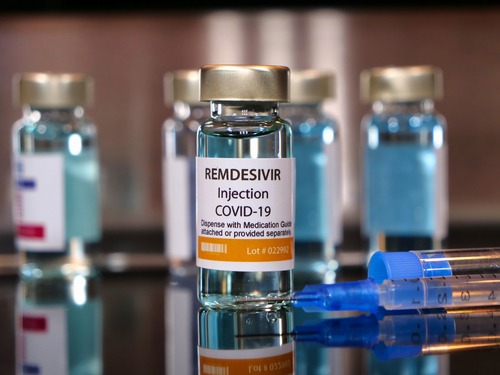
Results of a multinational, Phase 3 National Institute of Allergy and Infectious Diseases (NIAID)-funded trial last week showed that combining remdesivir with anti-coronavirus hyperimmune intravenous immunoglobulin (HIVIG) fails to do more for COVID-19 hospitalized adults than remdesivir alone.
HIVIG is a highly concentrated solution of antibodies meant to neutralize SARS-CoV-2, the virus responsible for COVID-19. They come from the liquid portion of blood or plasma donated by those who have recovered from COVID-19. Unfortunately, they offered no gains that researchers could find. The antibody solution tested in the Inpatient Treatment with Anti-Coronavirus Immunoglobulin (ITAC) trial brought safety concerns to bear, depending on whether a user naturally generated SARS-CoV-2 neutralizing antibodies before receiving it.
“In our quest to find safe and effective treatments for COVID-19, we had hoped that adding anti-coronavirus hIVIG to a remdesivir regimen would give the immune system a boost to help suppress the virus early in the course of hospitalization,” Dr. Anthony Fauci, NIAID director, said. “Unfortunately, the ITAC trial demonstrated that this strategy did not improve the health of adults hospitalized with COVID-19 and may be harmful for a certain subset of patients. Studies testing this strategy in non-hospitalized adults earlier in the course of infection are underway.”
The trial, published in The Lancet, was conducted on nearly 600 hospitalized adults who had COVID-19 symptoms for up to 12 days but had not progressed to life-threatening conditions. Patients were pulled from 11 countries between October 2020 and February 2021 by the NIAID-funded International Network for Strategic Initiatives in Global HIV Trials (INSIGHT). HIVIG was supplied from four companies: Emergent BioSolutions, Grifols S.A., CSL Behring, and Takeda.
Researchers followed participants over seven days, after which safety was assessed, and continued to follow them for a month. Randomly, patients were given either infusions of hIVIG plus the broad-spectrum antiviral remdesivir or a placebo and remdesivir. Those given hIVIG saw no health boosts compared to those given just remdesivir, nor any positive difference in safety. In fact, among those who had developed SARS-CoV-2 neutralizing antibodies before receiving hIVIG, the odds of a worse safety outcome at day seven rose 1.6 times, though researchers are uncertain why.




